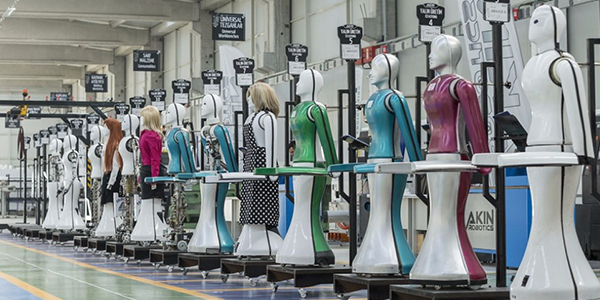As domestic and foreign security improved in the period following the July 2016 failed coup attempt, the Turkish economy began to regain the momentum built in the decade before the June 2013 Gezi Park disorders (which ushered in three years of political turmoil). Thus Turkey’s 2017 export totals came in only slightly less than the 2014 all-time record, which 2018 is likely to shatter (this January’s export figures showed 15 percent year-on-year growth). The automotive assembly sector, one of the Turkish economy’s primary engines, had a record 2017. The end of tensions with Russia meant that tourists, too, came flocking back: there were 32 million arrivals in 2017, a plus-25 percent increase over the previous year.
Overall, the most positive sign was the 11 percent growth recorded for 2017’s third quarter. For 2017 as a whole this will be 6-7 percent, which means that Turkey is back to pre-2013 levels of growth. In fact, Turkey has averaged 5 percent annual growth over the past fifteen years despite all the regional conflicts and domestic political difficulties.
Even though increasing productivity and steady demand indicate that the Turkish economy will continue to grow, other problems persist. Inflation is high and the Turkish lira continues to lose ground against the USD. But the situation is not comparable to fifteen years ago, nor even to 2011, when yearly inflation ran into double-digits, and the TL lost a huge chunk of value against the dollar. As for last year’s inflation, part of the reason was the unwillingness of international lenders to provide long-term loans to Turkish institutions, which forced a switch to shorter-term (and more expensive) financial instrument. This is likely to change soon as the Turkish economy continues to grow and political stability is maintained.
The debate over interest rates is another source of continuing tension. President Erdoğan and his advisors want interest rates to drop in order to create a more attractive environment for foreign investment. Orthodox economic theory says that dropping interest rates stimulates inflation. The government wants both interest rates and inflation to drop, which economic theory says is a contradiction.
On the other hand, over 2002-2013, that’s exactly what happened as annual inflation went from around 80 percent to single-digits, and interest rates experienced a similar decline. Many economic reforms — monetary and structural — being carried out now did not have an impact on that earlier period, and yet both inflation and interest rates declined precipitously. For example, just last week we learned that 80 percent (no joke!) of all foreign currency exchange counters (döviz büroları) in Turkey are off-the-books, but will now be subject to increased regulation and oversight. That this did not happen much earlier is a stunning revelation. Clearly, the debate over interest rates and inflation will continue for some time, and may simply depend more on domestic political stability and “signaling” (as I heard one Turkish economist call it) from the government’s economics team than on strict theoretical orthodoxy.
More important than any other issue is that Turkish industrialization continues, and that Turkey keeps building technological capacity in high value-added sectors. The armaments sector, given special emphasis for the last decade, has become a major driving force in technological development, and is now paying important dividends. As mentioned in the previous column, the Turkish state now has the capacity to produce everything from multi-purpose infantry-type automatic weapons to armed drones, military helicopters, and frigate-size littoral vessels. The electronics for such vehicles, aircraft or ships has also been largely developed by Turkish technicians.
The emphasis on armaments not only increases Turkish self-sufficiency in defense matters, but it also promotes the development of advanced technologies. Here, it must be noted again that the repeated, enduring unwillingness of Turkey’s NATO allies to provide weapons and technologies for Turkey’s legitimate security needs is the fundamental factor pushing the Turkish state to develop these capacities.
But armaments are not the only developing technological sector. Major Turkish technology and household appliance companies such as Arçelik, Beko, Vestel, and others continue to create new products. A robot factory was recently opened in Konya. And Turkish universities are creating international and local partnerships to turn technological research into applications and products.
Furthermore, the issues associated with modern industrial economies are, little by little, beginning to dominate domestic arguments about policy. Tariffs on agricultural goods, for example, are becoming a hot topic, as they should. The Turkish state protects many (if not most) Turkish agricultural goods. The Turkish agricultural sector is still much larger than would be expected for an industrialized society, which means that Turkey still has ground to cover before it can be considered a truly industrialized economy. It also means that mechanization and conglomeration in the agricultural sector will continue. Even more pressing — because unemployment is already at 10 percent — is that job creation will have to continue to absorb not only those already unemployed, but also those leaving the agricultural sector.
Politics, too, is an issue when it comes to agriculture. Publicly, the AK Party is careful to make strong statements about their unending support for the farmer. At the same time, they have lowered tariffs on meat and some grain products in an attempt to ease market prices. In other words, the AK Party government is beginning to encounter that quandary that confronts industrial societies: lower prices keep urban consumers happy but put pressure on the small farmer. Expensive and inefficient transportation is another factor pushing agricultural prices up because most products are hauled to Istanbul or Ankara by truck. Bananas flown in from South America, for instance, are only slightly more expensive than bananas grown on Turkey’s Mediterranean coast between Alanya and Anamur.
Tariffs and subsidies (also an AK Party practice) can take some of the pressure off the small farmers, but that could be a politically unpopular choice in the long run, and may eventually constitute an unwanted loss of revenue from state coffers. Encouraging greater consumption and consolidation in the agricultural sector can keep prices lower, but will also drive small farmers out of business.
Another pet topic of mine is the price of hazelnuts (filberts), for which Turkey is the biggest global producer. But the raw product prices paid to Turkish hazelnut producers by Fiskobirlik, the major hazelnut growers’ cooperative, have been inflated for years, and international competition has emerged. Hazelnut market prices have consequently begun to drop, and the state has paid a lower price to farmers in recent years than Fiskobirlik, which has resulted in some tension. In sum, heated debates about tariffs and agricultural prices are unlikely to subside in the years ahead.
Finally, a topic tangential to economic matters is its convergence with socio-cultural issues. Have Turkish people adapted mentally to the organization and rationalization of an industrial economy? It’s still very difficult to argue that this has occurred. There’s no question that large numbers of Turkish citizens have adapted fully to modern, urban, industrial, professional, and rationally-ordered life, but it’s equally clear that a large portion, maybe most, have not.
An example that I have repeatedly encountered over the years is the basic subject of professionalization in all employment sectors. Only in recent years has the issue of professional approaches to jobs and careers become something that Turkish people discuss. Taking pride in work and in one’s career or profession, and giving respect to an employee regardless of their job, are mentalities still under development.













